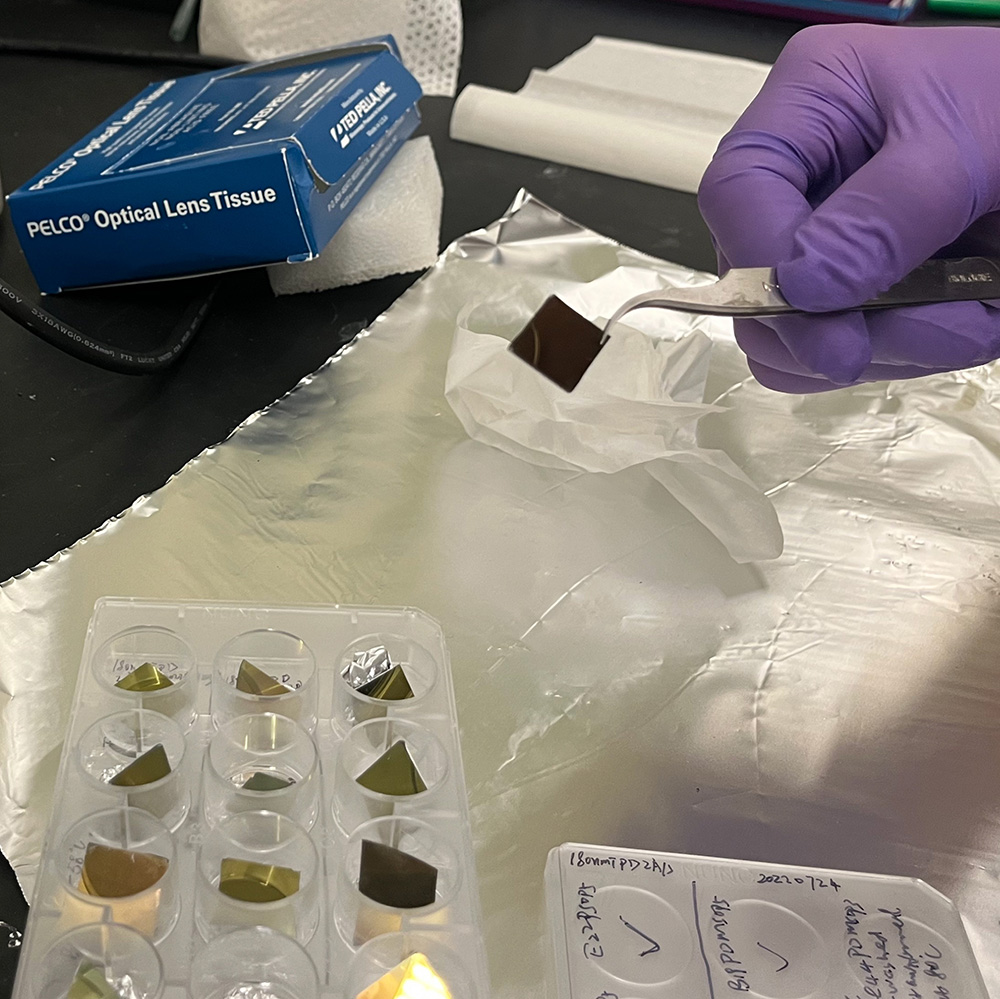Research Roundup: Stable Glass, Shape-Shifting Organisms, and More
The latest installment of this series highlights work from four faculty working in biology, chemistry, and economics.

For this Omnia research roundup, we share findings out of the Department of Biology about single-celled organisms called archaea and separately, about how people use proxies like stereotypes to guide whether they want to cooperate with others. From the Department of Chemistry, a new paper reveals how to make more rigid, denser glass. Finally, a professor in the Department of Economics looks at the effect of domestic violence laws on women’s autonomy and malnutrition in children.

Shape Shifters
Archaea, single-celled organisms once thought to survive only in the most extreme environments, actually exist in lakes and oceans, in soil, even in the human gut. Yet despite their ubiquity, little is known about them, not even what determines their shape.
Biology Professor Mecky Pohlschröder and colleagues have now unshrouded some of the mystery. Studying the cells of an organism called Haloferax volcanii, the interdisciplinary team identified a diverse set of proteins that help determine whether the organism will be rod-shaped, disk-shaped, or transition from one to the other—a factor that affects how the organism can function in and adapt to its environment. The findings appeared in the journal Nature Communications.

Stereotypes and Cooperation
People tend to cooperate with those who have a good reputation for helping others, a link known as indirect reciprocity. When paying attention to how each individual behaves becomes too taxing, however, people turn to proxies like stereotypes to guide them. Researchers in the lab of Joshua Plotkin, Walter H. and Leonore C. Annenberg Professor of the Natural Sciences, and colleagues at Princeton wanted to understand how this type of broad categorization might affect cooperation at the societal level.
Employing a model of indirect-reciprocity they built, they determined that in many scenarios use of stereotype will spread and will also significantly reduce cooperation, findings they published in the journal PLOS Computational Biology. Down the line, this team hopes to study the influence of gossip and other information-gathering methods on how communities reach consensus about social reputations.

Stable Glass
Though stable glass takes millennia to form naturally, researchers have been trying to better understand this aging in an effort to speed it up. One way to do so is to make a glass from vapor instead of cooling a liquid.
Now, work from the lab of Zahra Fakhraai, a professor in the Department of Chemistry, and colleagues from Brookhaven National Lab has revealed that forming the glass on a softer, more flexible surface “dramatically accelerates” the timetable—by decades—and creates more rigid, denser glass. The findings, published in Nature Materials, could result in new methods to precisely engineer glass films and have possible implications for applications like semiconductors.

Domestic Violence Laws
Intimate partner violence affects millions of women and girls across the globe, but the laws that protect them vary widely. Jere Behrman, William R. Kenan Jr. Professor of Economics, and colleagues from UCLA and Stony Brook University wanted to understand how such variations influence certain life decisions for women, and how those decisions factor into what’s known as “wasting”—when children weigh too little for their height.
In findings published in PLOS One, the researchers showed that having domestic violence laws in place increased women’s autonomy in healthcare decision-making by almost 17 percent and in financial decision-making by 6 percent. This directly affected the probability of wasting, dropping it by 30 percent for children up to age 2 and by more than 38 percent for children up to age 5. “Because childhood undernutrition has lifelong negative effects,” Behrman says, “these results add a further reason to expand the coverage of domestic violence laws.”







